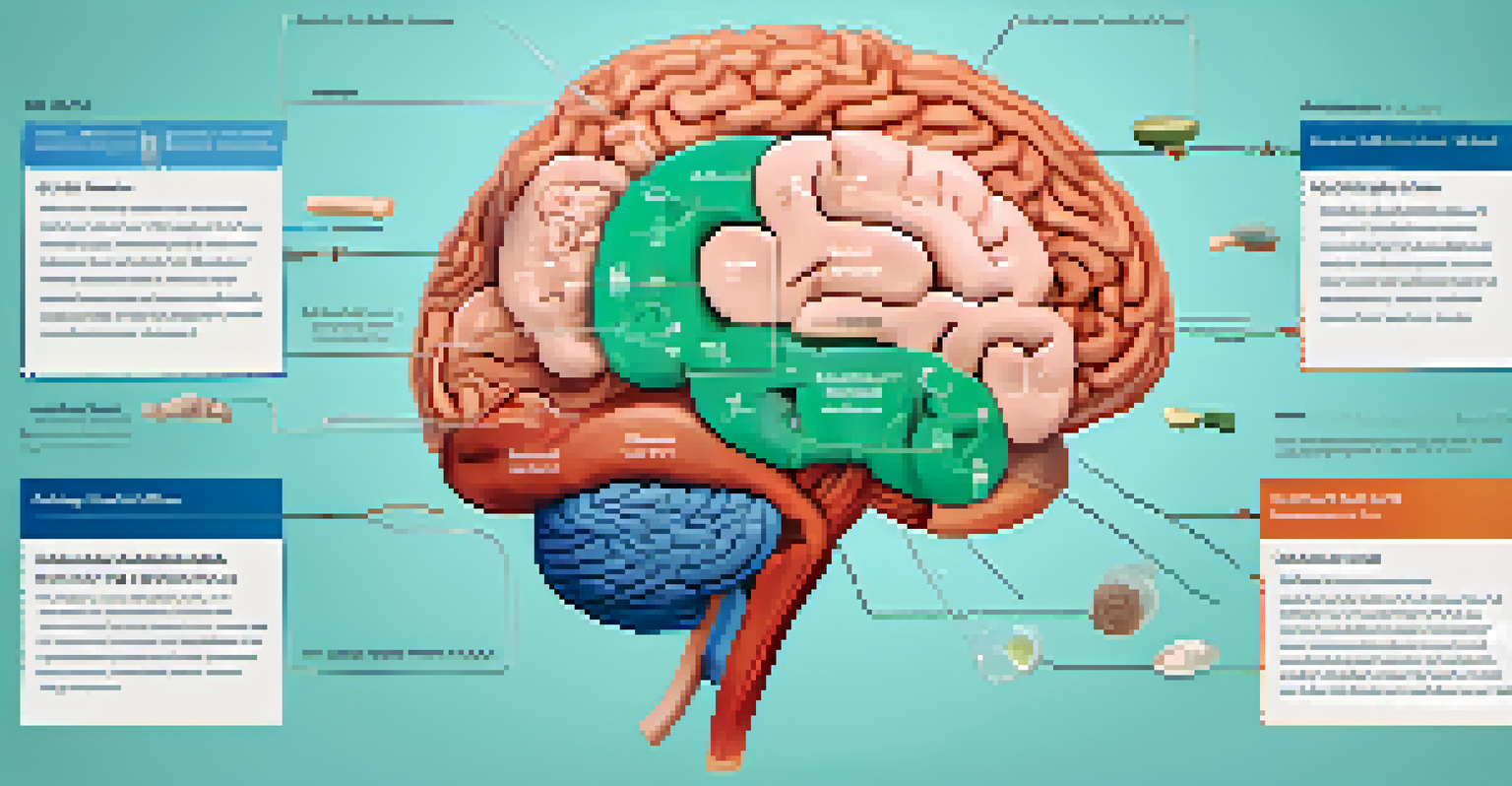The Evolution of Gut Health: A Historical Perspective

Ancient Understanding of Digestion and Health
In ancient civilizations, the connection between digestion and overall health was already being recognized. Cultures like the Egyptians and Greeks pondered the role of food in bodily functions, often attributing ailments to imbalances in the body’s humors.
All disease begins in the gut.
For instance, Hippocrates famously said, 'All disease begins in the gut,' highlighting early awareness of gut health. Ancient texts often recommended specific diets to address various health issues, emphasizing the importance of what we consume.
These early insights laid the groundwork for future understanding, as they began to connect gut health with conditions beyond mere digestion, hinting at a more holistic view of wellness.
The Rise of Microbiology and Gut Flora
Fast forward to the 19th century, when the field of microbiology began to emerge. Scientists like Louis Pasteur and Robert Koch introduced notions of beneficial and harmful bacteria, paving the way for understanding gut flora's role in health.

Research began to reveal that the gut is home to trillions of microorganisms, collectively known as the gut microbiome. This diverse community influences digestion, immunity, and even mental health, illustrating just how crucial these tiny organisms are.
Gut Health: An Ancient Insight
Ancient civilizations recognized the link between digestion and overall health, emphasizing the significance of diet in wellness.
As this knowledge expanded, it sparked interest in probiotics and fermented foods, which were believed to enhance gut health by restoring beneficial bacteria, a concept rooted in traditions dating back thousands of years.
The 20th Century: A Focus on Diet and Nutrition
The 20th century saw a significant shift towards understanding the relationship between diet, nutrition, and gut health. With the rise of processed foods, concerns over dietary impacts on gut health became more pronounced.
Let food be thy medicine and medicine be thy food.
Researchers began linking diets high in refined sugars and fats to digestive issues and broader health problems. This era also popularized the idea of 'eating for health,' which emphasized whole foods and natural ingredients.
Thus, the conversation around gut health evolved to include not just what we eat, but how modern diets could be sabotaging our digestive wellness.
Integrating Gut Health into Modern Medicine
As the understanding of gut health deepened, it started integrating into modern medicine. Doctors and nutritionists began to refer to the gut as the 'second brain,' recognizing its influence on mental health through the gut-brain axis.
Conditions like irritable bowel syndrome (IBS) and inflammatory bowel disease (IBD) gained more attention, prompting research into their connections with stress, diet, and lifestyle. This shift encouraged a more patient-centered approach to treatment.
Microbiome's Role in Well-Being
The discovery of gut flora revealed its crucial influence on digestion, immunity, and mental health, highlighting the importance of beneficial bacteria.
Today, healthcare professionals often recommend dietary changes and probiotics as part of treatment plans, reflecting the evolving understanding of the gut’s role in overall health.
The Role of Technology in Gut Health Research
In recent years, technology has catalyzed advances in gut health research. Genomic sequencing and microbiome analysis have allowed scientists to delve deeper into the complexities of gut flora.
This technological leap has led to personalized nutrition plans based on an individual's microbiome, tailoring dietary recommendations to optimize gut health. Such innovations highlight the importance of a customized approach to wellness.
As we embrace technology in health, the potential for improving gut health through targeted interventions continues to grow, making it an exciting area of exploration.
Cultural Perspectives on Gut Health
Around the globe, different cultures have long recognized the importance of gut health, often through traditional practices. For instance, fermented foods like kimchi in Korea and sauerkraut in Germany have been staples in diets, revered for their health benefits.
These practices reflect a cultural understanding of gut health that predates modern science. As globalization spreads awareness of these traditions, many are adopting them for their potential health benefits.
Future of Gut Health Research
Ongoing studies aim to deepen our understanding of the gut's connection to chronic diseases, promoting a proactive approach to maintaining gut health.
This cultural appreciation enriches the modern discourse on gut health, reminding us that our ancestors knew a thing or two about nourishing our bodies.
Future Directions in Gut Health Research
Looking ahead, the future of gut health research is promising, with ongoing studies exploring the gut's connection to chronic diseases, obesity, and mental health. As we continue to unveil the mysteries of the microbiome, new therapies may emerge to support gut health.
Moreover, the emphasis on preventive health measures points to a growing interest in maintaining a healthy gut rather than solely treating issues as they arise. This proactive approach could redefine healthcare paradigms.

As we stand on the brink of these discoveries, one thing is clear: the journey of understanding gut health is far from over, and it holds exciting potential for enhancing our overall well-being.